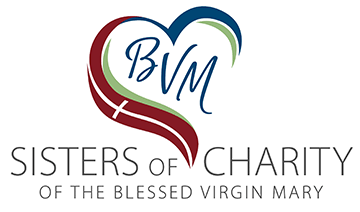The story of the Sisters of Charity of the Blessed Virgin Mary begins in Dublin, Ireland, In 1832, when Mary Frances Clarke and her four companions, Margaret Mann, Eliza Kelly, Rose O’Toole, and Catherine Byrne, began a school for girls, “Miss Clarke’s Seminary,” on North Anne Street.
A year later, the laywomen immigrated to Philadelphia to begin teaching the children of Irish immigrants. By Nov. 1, 1833, with the help of Rev. Terence J. Donaghoe, they had made vows as a religious congregation.
Within 10 years, the new community of sisters responded to an invitation from Bishop Mathias Loras to join other pioneers in the Iowa Territory. Nineteen sisters arrived in the Mississippi river town of Dubuque on Sept. 5, 1843, and established their first motherhouse, St. Joseph on the Prairie, 10 miles west of town.
Legislature constraints prevented the sisters from teaching Native American children as they had planned. Undaunted, they began teaching the children of pioneer settlers, lead miners, and farmers. The first school they established in Iowa was St. Mary Female Academy, which grew into today’s Clarke University.
The Sisters of Charity, BVM established boarding schools and taught in parish schools in the cities and towns of Iowa and Wisconsin under the jurisdiction of the Bishop of Dubuque. In 1867, at the invitation of the Reverend Arnold Damen, SJ, they expanded their apostolate to Chicago. The first California mission opened 20 years later. Over the years, nearly 5,000 women entered the congregation.
Their ministry in education continued to grow and the BVMs eventually established a cross-country network ranging from New York to Hawaii and Minnesota to Mississippi. Following the death of Mother Clarke in 1887, Mothers Mary Gertrude Regan and Mary Cecilia Dougherty guided the institutional expansion of the young community, recognizing the need to develop programs advancing the professional competency of the sisters as educators.
The BVMs responded eagerly to the Second Vatican Council’s call to renewal. Their mission and ministry expanded around the globe and beyond the traditional field of education to include health care, pastoral services, and social justice.
BVM sisters and their associates collaborate with other women religious and advocacy organizations on issues such as immigration reform, human trafficking, opposition to the death penalty, and nonviolence, especially for women and children.
